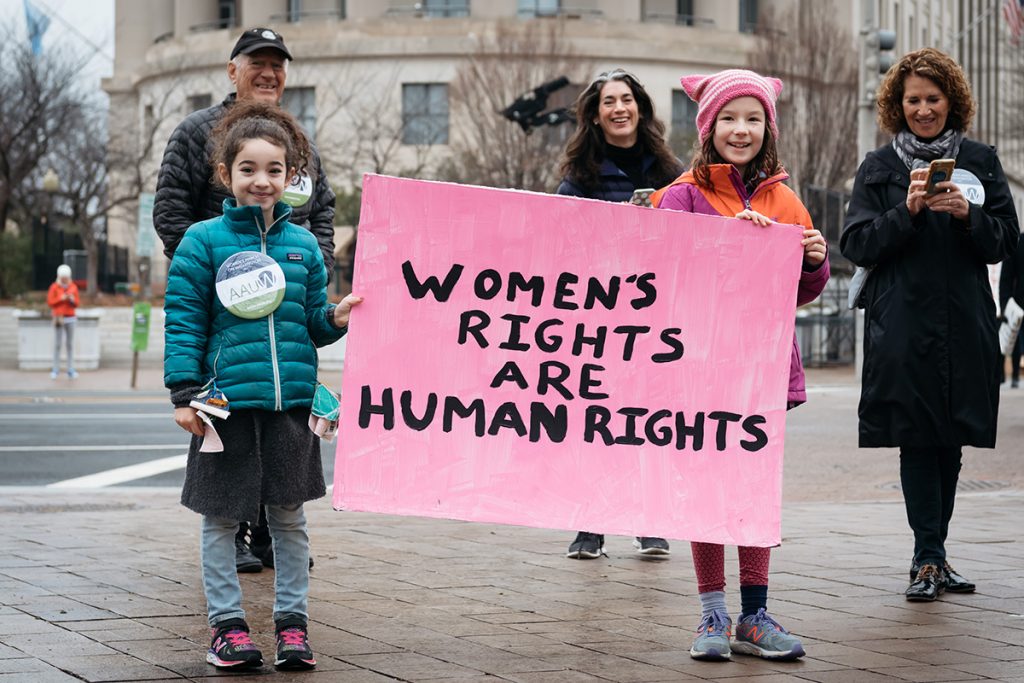In line with Trump’s executive order to reinstate the “Global Gag Rule”, the U.S. administration on Monday announced plans to move forward with expanding the antiabortion policy. Whereas previous Republican administrations applied the Global Gag Rule to U.S. aid for family planning services, Trump’s version encompasses all global health assistance programs.
Under the newly dubbed “Protecting Life in Global Health Assistance” policy, any organization that receives U.S. funding, no matter what health services it provides, would have to choose between providing any services linked to abortion and getting funding for its programs. This policy affects even organizations that fund these services from non-U.S. government sources. So a women’s health organization that receives U.S. government aid only for HIV prevention, for example, would lose funding if it offers counseling or even information that mentions abortion.
Trump’s Global Gag Rule targets nearly $9 billion in U.S.-funded global health assistance programs, about 15 times more funding than previous versions. Each year 42 million women worldwide choose abortion. But roughly half of these procedures are unsafe, and about 68,000 women do not survive – annually. The expansion of the Global Gag Rule will only increase the number of unsafe and, in many cases, fatal abortions.
The restrictions on the type of health programs that can receive funding is one reason ActionAid doesn’t accept U.S. government money. If we did, we wouldn’t be able to support women and girls around the world to access their full range of sexual and reproductive rights, including abortion.
In South Africa, India, and Ghana, we support young urban women so they can better understand and claim their rights and create positive change in their communities. Because a woman’s autonomy includes control over her body as well as control over her income, we work with young women to become independent in both of these overlapping spheres.
The young urban women we work with face many barriers to sexual and reproductive health services, from high costs and long distances to lack of privacy and unfriendly staff. Hospital hours often conflict with school or work schedules, and most of the women aren’t able to take time off to visit a hospital.
In Johannesburg, South Africa, some women said they avoided clinics because nurses were rude to them and lectured them for “not focusing on their studies”. Some clinics offer little information on contraception or even pressure women to use a particular contraceptive, rather than allowing them to choose what’s best for them.
Finding clinics inhospitable, many young women opt for neighborhood pharmacies instead, even though this may limit their healthcare options.
Even if young women are able to find the medical help they need, their choices are often constrained by financial insecurity. In India and Ghana, many of the women we work with earn less than the minimum wage in informal jobs that offer few or no protections for sexual harassment and other rights violations. In South Africa, those who work also have informal jobs, while the majority are either studying or unemployed.
And although young working women have some say over the money they make, they’re often expected to prioritize their families’ needs. A young woman in Accra, Ghana, said:
“I decide on how to use my money personally, but as a woman at times I give money for food if there is none for him [my husband] to provide.”
At the same time, we’ve seen that young urban women who work and generate income are more likely to seek medical services. This in turn gives them a sense of achievement and deepens their confidence in claiming their sexual and reproductive rights and in challenging gender norms.
Another young woman in Accra said:
“I have the money to buy the contraceptive because I am self-employed. I can now refuse my husband when he demands sex if I am not in the mood.”
Because the women are facing backlash from their partners and their communities, local peer groups are essential to providing them with support and protection. While most groups focus on physical and psychological safety, one of our partner organizations in Mumbai, India, set up first-of-its-kind “women’s courts”, volunteer-run legal aid centers that serve women seeking justice for matters such as property rights and divorce. The volunteers receive training and work in consultation with lawyers to provide women with legal counsel that they wouldn’t otherwise receive in male-dominated courts.
Supporting young urban women to achieve economic security is part and parcel of connecting them with the resources they need to make informed choices about their bodies. We wouldn’t be able to do this work if we accepted U.S. government funding.
At the end of the day, the people bearing the brunt of Trump’s ill-named policy will be women who most need access to health programs. That’s why we continue to work with women and girls to fight for equality in all spheres of their lives.

